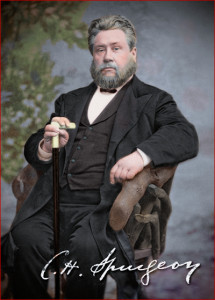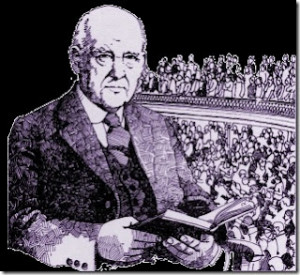 Have you ever considered the “why” behind the rise of false prophets?
Have you ever considered the “why” behind the rise of false prophets?
What may be a shock to us is the fact that according to scripture, false prophets arise for the testing of God’s people. These tests are not for God’s sake in order that He may learn things about us, as if God is somehow unaware of the choices we will make. He knows all things exhaustively, past, present or future. The Psalmist declared, “Even before a word is on my tongue, behold, O LORD, you know it altogether.” (Psalm 139:4). He already knows what we as humans will do.
God never learns anything because He knows all things and what is more, He has always known them. We refer to this exhaustive knowledge of God as His omniscience, stemming from the words “omni” meaning “all”, and “science”, referring to “knowledge’.
EVEN THE DEVIL IS GOD’S DEVIL
Martin Luther, in speaking of God’s Sovereignty over all things once famously said, “Even the devil is God’s devil.” What he meant by that is that even though the devil’s intention is to hurt, injure, deceive – to kill, steal and destroy – God also has a purpose when allowing him room to do so.
Behind every false prophet is a false spirit, and behind that, is the devil himself, who with evil intentions is seeking to lure his prey into deception. God’s people are warned about this in very clear terms and in His grace, He has given us three definite tests we are to use in order that we can determine the legitimacy (or otherwise) of any so called prophet:
TEST NUMBER 1: DOES THE ‘PROPHET’ TELL US TO FOLLOW A FALSE GOD?
Deut. 18: 15 “The LORD your God will raise up for you a prophet like me from among you, from your brothers—it is to him you shall listen— 16 just as you desired of the LORD your God at Horeb on the day of the assembly, when you said, ‘Let me not hear again the voice of the LORD my God or see this great fire any more, lest I die.’ 17 And the LORD said to me, ‘They are right in what they have spoken. 18 I will raise up for them a prophet like you from among their brothers. And I will put my words in his mouth, and he shall speak to them all that I command him. 19 And whoever will not listen to my words that he shall speak in my name, I myself will require it of him. 20 But the prophet who presumes to speak a word in my name that I have not commanded him to speak, or who speaks in the name of other gods, that same prophet shall die.’
TEST NUMBER 2: DOES WHAT THE ‘PROPHET’ SAID COME TO PASS?
Deut. 18: 21 And if you say in your heart, ‘How may we know the word that the LORD has not spoken?’— 22 when a prophet speaks in the name of the LORD, if the word does not come to pass or come true, that is a word that the LORD has not spoken; the prophet has spoken it presumptuously. You need not be afraid of him.
TEST NUMBER 3: EVEN IF THE THING SAID DOES COME TO PASS, WHICH ‘GOD’ IS THE ‘PROPHET’ WISHING US TO FOLLOW?
Deut 13: 1 “If a prophet or a dreamer of dreams arises among you and gives you a sign or a wonder, 2 and the sign or wonder that he tells you comes to pass, and if he says, ‘Let us go after other gods,’ which you have not known, ‘and let us serve them,’ 3 you shall not listen to the words of that prophet or that dreamer of dreams. For the LORD your God is testing you, to know whether you love the LORD your God with all your heart and with all your soul. 4 You shall walk after the LORD your God and fear him and keep his commandments and obey his voice, and you shall serve him and hold fast to him. 5But that prophet or that dreamer of dreams shall be put to death, because he has taught rebellion against the LORD your God, who brought you out of the land of Egypt and redeemed you out of the house of slavery, to make you leave the way in which the LORD your God commanded you to walk. So you shall purge the evil from your midst.
This passage is especially revealing. We are told that even when seemingly real (legitimate) signs and wonders (things that hold up to scrutiny and empirical observations) – yes, even when signs and wonders occur under the “ministry” of a false prophet, if he is proclaiming a false God, the signs and wonders performed are God’s means of testing His people. Do not be fooled. If the prophet is proclaiming a false ‘god’ reject the messenger without hesitation, along with his message. Do not, I repeat, do not listen to him!
DO WE GET THIS?
We are far too often impressed by the supernatural. Though God can and does intervene in the course of nature, sometimes even dramatically, we must be cognizant of the fact that the supernatural is not always a sign of truth. Jesus did real miracles as did His Apostles. And yet, while a sign and a wonder can be a legitimate authenticating proof of a message being from God, Scripture also states that it can indeed be a testing ground for His people. We are told in this passage that when a false prophet performs a sign or a wonder, God is testing His people to see what is in their hearts. False prophets, though in the employ of the devil himself, are therefore Divinely sent tests to see if we truly love God with all our hearts.
DON’T FOLLOW EVERY SIGN
 If you start your journey in Florida (on the east coast of the United States) and wish to get to California (on the west coast), my advice is that you do not follow signs to New York (in the north east of the country). Should you do so, it could well be the case that every mile you travel will take you further and further away from your intended destination.
If you start your journey in Florida (on the east coast of the United States) and wish to get to California (on the west coast), my advice is that you do not follow signs to New York (in the north east of the country). Should you do so, it could well be the case that every mile you travel will take you further and further away from your intended destination.
In the same way, if you see a sign, ask yourself this question: where is this sign pointing me to? And know this: A true (God appointed) sign will point you away from the person performing the sign, and to the one true God revealed in Scripture as the Trinity – one in essence and three in Person, Father, Son and Holy Spirit. He is the Sovereign, holy, majestic One who rules heaven and earth, declaring the end from the beginning and accomplishing everything He sets out to do (Isaiah 46:8-11). Any other “god” is a complete fraud; a “god” who cannot save, for in reality, he does not actually exist.


